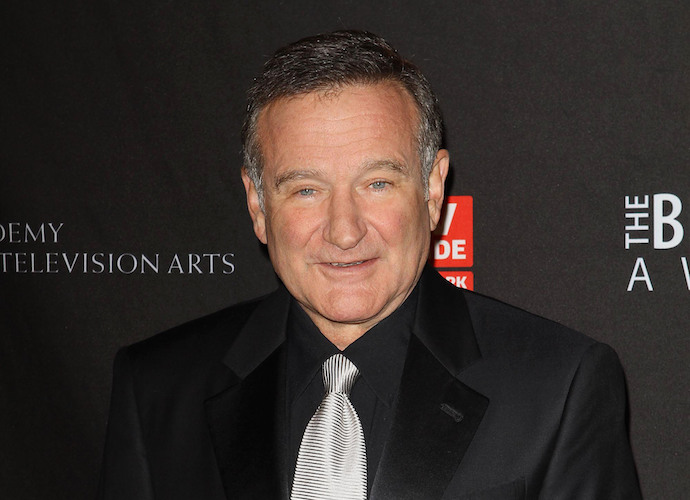Robin Williams’ Widow Susan Schneider Williams Writes Heartbreaking Essay On Husband’s Brain Disease
Robin Williams’ widow Susan Schneider Williams has published an essay, “The Terrorist Inside My Husband’s Brain,” about her late husband’s fatal brain disease in Neurology.
ROBIN WILLIAMS’ WIDOW PUBLISHES ESSAY
Williams’ suicide on August 11, 2014 brought a lot more questions than answers about the veteran actor’s hardships, though three months after the truth was finally brought to light. Williams had been suffering from a brain disease called Lewy Body Disease, or LBD. The disease is extremely hard to diagnose, as its symptoms tend not to relay a common factor. In fact, a tremor in Williams’ left hand spurred a diagnosis of Parkinson’s Disease which, while an incorrect diagnosis for the late actor, is not very far off.
“One neuropathologist described LBD and PD as being at opposite ends of a disease spectrum,” Schneider Williams explains in her essay. “That spectrum is based on something they share in common: the presence of Lewy bodies—the unnatural clumping of the normal protein, α-synuclein, within brain neurons. I was also surprised to learn that a person is diagnosed with LBD vs PD depending on which symptoms present first.”
While parts are scientific, Schneider Williams’ essay also talks about her husband’s decline from an unknown illness. The couple had been together seven years before Williams took his life, and the majority of that time was happy. “Not only did I lose my husband to LBD, I lost my best friend. Robin and I had in each other a safe harbor of unconditional love that we had both always longed for. For 7 years together, we got to tell each other our greatest hopes and fears without any judgment, just safety.”
LBD takes hold swiftly, and the decline is rapid and confusing. “He had been struggling with symptoms that seemed unrelated: constipation, urinary difficulty, heartburn, sleeplessness and insomnia, and a poor sense of smell—and lots of stress,” Schneider Williams describes, citing symptoms from almost a year before his death. “He also had a slight tremor in his left hand that would come and go.”
After many frustrating months, Williams took his own life, and never even knew the name of his killer. Schneider Williams was told their doctors were probably very close to a diagnosis. LBD, however, is fatal. Knowing what was going on in Williams’ brain would probably only have provided a very fleeting comfort. “How I wish he could have known why he was struggling, that it was not a weakness in his heart, spirit, or character,” writes Schneider Williams. “The massive proliferation of Lewy bodies throughout his brain had done so much damage to neurons and neurotransmitters that in effect, you could say he had chemical warfare in his brain.”
“I met with medical professionals who had reviewed Robin’s last 2 years of medical records, the coroner’s report, and brain scans. Their reactions were all the same: that Robin’s was one of the worst LBD pathologies they had seen and that there was nothing else anyone could have done. Our entire medical team was on the right track and we would have gotten there eventually. In fact, we were probably close.”
After learning the correct diagnosis, Schneider Williams learned as much as she could about the disease that affects 1.5 million nationwide. She has since become a serving member on the American Brain Foundation Board of Directors. Her essay, while emotional and informative, was written with the purpose of encouraging medical professionals to continue their research and search for a cure.
“I know you have accomplished much already in the areas of research and discovery toward cures in brain disease. And I am sure at times the progress has felt painfully slow. Do not give up. Trust that a cascade of cures and discovery is imminent in all areas of brain disease and you will be a part of making that happen.
“You and your work have ignited a spark within the region of my brain where curiosity and interest lie and within my heart where hope lives. I want to follow you. Not like a crazed fan, but like someone who knows you just might be the one who discovers the cure for LBD and other brain diseases.
“Thank you for what you have done, and for what you are about to do.”
RELATED ARTICLES
Get the most-revealing celebrity conversations with the uInterview podcast!


 Click here for the Best Celebrity Bikinis Of Summer 2016 Photos Slideshow
Click here for the Best Celebrity Bikinis Of Summer 2016 Photos Slideshow



Leave a comment